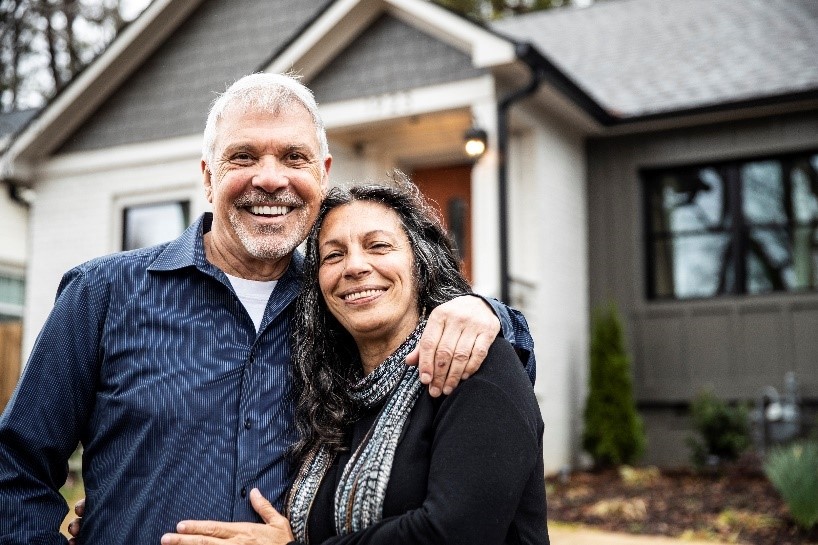Why “Bad” Health Habits Are So Hard to Break, and What You Can Do About It
We all have those habits, the ones we know don’t serve us, yet we keep doing them anyway.

The phone scrolling in bed.
Skipping breakfast.
Talking ourselves out of exercise with that familiar voice in our head.
Even when we’re doing most things ‘right’ going to the gym, eating well, getting decent sleep, it’s often those small-but-consistent habits that quietly derail us.
(Did you know large UK polls show a clear shift toward wanting to reduce drinking: 48% of UK drinkers planned to cut down in the coming year (Aviva research), and 1 in 5 say they want to drink less in 2025 (Alcohol Change UK)
So, why are “bad” habits so sticky? And more importantly — how can we shift them without shame or overwhelm?
The Psychology of Why Habits Stick
James Clear, author of Atomic Habits, sums it up perfectly:
“You do not rise to the level of your goals. You fall to the level of your systems.”
Habits, whether helpful or harmful, are essentially shortcuts. Our brains create them to save energy — and they’re very efficient at it.
Dr Andrew Huberman, a neuroscientist at Stanford and host of the Huberman Lab podcast, explains that habits form through the brain’s reward system. Every time a behaviour gives us a dopamine hit whether it’s the quick buzz from sugar or the stress relief from a drink our brain takes note and wants to repeat it.
This is why breaking a “bad” habit isn’t just about willpower. It’s about understanding what that habit gives you and then finding a healthier way to meet the same need.
Total Elimination Isn’t Always the Goal
Some habits, like smoking, often need an all-or-nothing approach. I know this first-hand, I gave up smoking years ago, and while it was tough, it was also clean-cut. I stopped. Full stop.
But not all habits are like that.
Take alcohol or chocolate. You might not want to remove them entirely and that’s perfectly valid. What many people are really looking for is balance.
I’ve been reflecting on my own relationship with alcohol. While I don’t identify as an alcoholic (my father, now 30 years sober, walked that path and I deeply admire him for it), I’ve noticed that alcohol does take something from me. Focus. Energy. Drive particularly on weekend mornings when I want to feel fully switched on.
Recently, I did two breaks: one for 40 days, and another for 30. I used Annie Grace’s Alcohol Experiment app, and it was eye-opening. I learnt not only what alcohol was costing me, but what it was giving me too, things I could find in other, more nourishing ways.
This is the third way we don’t talk about enough:
Not just quitting… but consciously swapping a habit for something better.
Habits That Undermine Even ‘Good’ Weeks
It’s a story I hear often:
“I’ve been so good all week, then I have a takeaway on Friday and suddenly the weekend’s a write-off.”
We do the workouts, prep the meals, tick the wellness boxes, but a single unhelpful habit (plus the internal story around it) can throw us off course.
Sometimes, it’s not the action but the thinking that derails us:
- “Well, I’ve blown today’s eating now, might as well keep going…”
- “The scales aren’t moving, so what’s the point?”
- “I’ll just start again Monday…”
These are habitual thought loops, and they’re just as important to break as physical behaviours.
So How Do You Actually Shift a ‘Bad’ Habit?
Here’s what works, both from the research and from my own coaching experience:
Awareness First
Start by noticing the habit, without judgement. When does it happen? What’s the trigger? What do you feel beforehand?
Identify the Need
Ask: What is this giving me? Comfort? Control? Distraction? Relief? Once you know the need, you can meet it in a healthier way.
Swap, Don’t Just Stop
Rather than eliminate, replace the habit with something more wholesome that meets the same need. If you drink to unwind, maybe it’s a bath and podcast. If it’s stress snacking, perhaps a short walk or journaling break.
Make It Easy
Willpower fades. Simplicity sticks. Set up your environment to make the new habit friction-free — keep healthy snacks visible, lay out your trainers, leave your phone outside the bedroom.
Get Support
You are up to 500% more likely to build new habits with the help of others. Whether it’s a coach, accountability group, or a supportive community, having people in your corner changes everything.
I’ve Been There, And I Can Help
This isn’t just theory for me. I’ve been through the process of unpicking stubborn habits, from cigarettes to scampi fries at every service station en route to Cornwall (!), to now exploring alcohol with honesty and curiosity.
I get how frustrating it is to feel like you’re doing “most things right” but still getting tripped up by one or two things.
And I know how powerful it can be to make simple, sustainable, personalised changes, not just to your habits, but to your whole mindset.
Ready to shift a habit, for good?
If you:
- Feel like one or two habits are holding you back
- Know what to do but struggle to do it consistently
- Want to feel more focused, energised and in control, without the all-or-nothing pressure…
Then let’s talk.
Book a free Discovery call here
You don’t have to do this alone.







